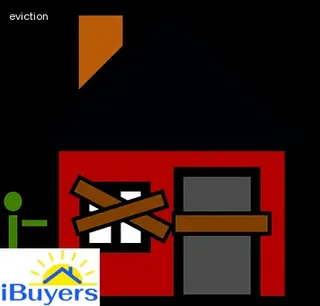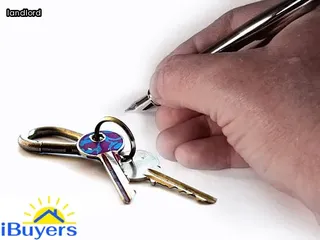In Idaho, eviction laws are governed by the Landlord and Tenant Act, which outlines the rights and responsibilities of both landlords and tenants. This act outlines the necessary steps required to lawfully evict a tenant who has failed to meet their obligations, such as not paying rent or violating a lease agreement.
The length of time it takes for an eviction depends on the circumstances; however, in general, an eviction can take anywhere from two weeks to three months. In order to ensure compliance with the law, landlords must follow all procedures outlined in the act and give proper notice before filing any legal action against a tenant.
Additionally, all evictions must be conducted through a court proceeding if the tenant contests it. Furthermore, landlords have the right to recover unpaid rent or damages when they win an eviction case in court.
It is important for landlords to understand their rights and obligations under Idaho's eviction laws in order to protect themselves and comply with applicable laws.

In Idaho, eviction rules and regulations are in place to protect the rights of both landlords and tenants. These laws vary state-by-state, but they all provide certain levels of protection for everyone.
Depending on the situation, an eviction process can be a lengthy ordeal. In Idaho, there are several reasons why this process takes longer than in other states.
For one, there are specific notification requirements that must be met in order for an eviction to legally take place. Additionally, Idaho requires that landlords provide tenants with additional time to respond to an eviction notice before proceedings can begin.
The amount of time depends on the circumstances, but it is usually at least 10 days from when the notice was served. Furthermore, if the tenant fails to move out after being served with an eviction notice, a court hearing is necessary before any action can be taken against them.
This adds even more time onto the process as a court date must be set and followed by a judgment decision before any further steps can be taken. All these factors contribute to why it takes longer than other states for an eviction process in Idaho to run its course.
Landlords may need to evict tenants for a variety of reasons, such as failure to pay rent in a timely manner, damage to the rental property, or violation of the lease agreement. It is important that landlords understand their rights and obligations when it comes to evicting tenants in Idaho.
In some cases, such as when a tenant has caused serious damage to the rental property or has engaged in criminal activity on the premises, eviction can take place immediately without providing notice. For most other violations, however, landlords must provide written notice in accordance with Idaho law before starting an eviction process.
Depending on the circumstances and applicable laws, this process can take from seven days up to several months.

In Idaho, a landlord is legally allowed to evict a tenant for nonpayment of rent, breach of contract, or if the lease term has ended. Furthermore, an eviction can be initiated if the tenant has violated any applicable laws or ordinances and/or caused damage to the property beyond normal wear and tear.
A landlord must give the tenant proper notice prior to initiating proceedings; in most cases this is either three days or seven days depending on the situation. If a tenant fails to comply with the notice they may be evicted without further warning.
It's important to note that a landlord cannot evict someone without cause, as this would be in violation of both state and federal laws.
In Idaho, landlords and property managers must issue a notice for termination with cause when evicting a tenant. The eviction process can take as little as five days if the tenant complies with the notice, but it can take much longer if they do not.
The landlord must give the tenant at least three days to comply with the notice before filing an eviction action in court. If the tenant fails to comply within this period, then the landlord can file an eviction lawsuit in court.
In this case, the process could take several weeks or even months depending on the complexity of the case. It is important for landlords and property managers to understand that there may be serious legal repercussions for failing to abide by state laws regarding notices for termination with cause.
A landlord risks being liable for damages and attorney's fees if they fail to follow proper procedures when evicting a tenant.

In Idaho, if a landlord or property manager wishes to terminate a tenancy without cause, they must provide the tenant with written notice. The amount of notice required varies depending on the length of the tenancy and whether or not rent is paid on a weekly or monthly basis.
For example, if rent is paid monthly then the landlord must give at least one full month's written notice before terminating the lease. If rent is paid weekly then a minimum of seven days' written notice must be given.
In both cases, failure to adhere to these legal requirements can result in serious consequences, such as being held liable for damages or having eviction proceedings delayed. It is therefore essential for landlords and property managers to familiarize themselves with their state's laws regarding termination without cause in order to avoid any potential legal disputes.
The eviction process in Idaho is complex and can take some time, but it is important for landlords and property managers to understand the steps involved. When initiating an eviction, the landlord must provide written notice to the tenant of their intention to evict them.
Depending on the reason for eviction, this may be a 3-day or 30-day notice. After receiving the notice, the tenant will have a certain amount of time to respond - either by leaving voluntarily, arranging for payment of back rent or filing an answer with the court.
If no response is made, or if any payment arrangements are not kept up with, then the landlord can file a summons and complaint with the court. This document must then be served upon the tenant by a process server or sheriff's deputy.
The tenant will then have seven days to file an answer with the court, after which they may request a trial date if they dispute any allegations in the complaint. Once all paperwork has been filed and served correctly, hearings may begin and a judge will decide whether or not to issue an eviction order.
If granted, tenants will need to vacate within seven days unless otherwise specified by law. The entire process can take anywhere from one month up to several months depending on how quickly each step is conducted and whether any disputes arise during proceedings.

The cost of an eviction can be high, both financially and emotionally. One of the key factors in determining the cost is understanding how long the eviction process takes in Idaho.
The length of time it takes to complete an eviction will vary depending on the specific case and if there are any complications or delays. Generally speaking, however, landlords and property managers should expect the process to last anywhere between one month to several months.
It may even take longer if a tenant contests or appeals their eviction. Additional costs also come into play during this time such as court fees, attorney fees, and lost income due to having a vacant unit.
Landlords should also factor in potential damages caused by tenants that must be paid for before they can rent out the unit again. It is important for landlords and property managers to understand these costs so they can plan accordingly before initiating the eviction process in Idaho.
When it comes to eviction in Idaho, tenants have certain rights that they can use to protect themselves. It is important for landlords and property managers to be aware of the defenses a tenant may have so that they can ensure that their eviction process complies with the law and does not violate any of the tenant's rights.
Most of these defenses will revolve around whether or not the eviction is justified, such as if there was an issue with the rental agreement or if the landlord failed to provide necessary repairs. Other possible defenses include discrimination, retaliation, and breach of contract.
Tenants also have the right to challenge an eviction by filing a motion in court, which could delay the process significantly. Knowing all the possible tenant defenses before starting an eviction process is essential for landlords and property managers in Idaho.

When it comes to the removal of a tenant from rental property in Idaho, landlords and property managers should be aware that the eviction process can take from several weeks to several months. All eviction cases are handled by the local magistrate court and must follow specific state laws.
Once an eviction notice has been filed, tenants have 3-5 days to respond before a hearing is scheduled. During this hearing, both parties will present their case to the judge who will then make a decision on whether or not to grant the eviction.
After the order is granted, tenants are typically given an additional 7-10 days to vacate the premises. However, if they fail to do so, landlords can then hire an enforcement officer to remove them from the property.
It's important for landlords and property managers to understand all of these steps involved in the eviction process to ensure they're following state law while removing tenants from rental properties in Idaho.
In Idaho, landlords and property managers must serve an eviction notice when terminating a tenant with cause. The amount of time depends on the circumstances; however, the process must be done in accordance with state law.
Landlords must provide proper notice to the tenant so they can fix any violations or move out. If there is a breach of lease such as failure to pay rent, the landlord or property manager has the right to begin the eviction process immediately.
In other cases, such as when there is illegal activity taking place on the premises, giving a three-day notice may be sufficient. It's important for landlords and property managers to familiarize themselves with eviction laws in order to ensure that all notices are served in compliance with Idaho state regulations.

Eviction is a long and complicated process, and it can take quite a bit of time for landlords or property managers in Idaho. Generally speaking, the eviction process can take anywhere from a few days to several months depending on the situation.
The length of the eviction process also depends on factors such as whether the tenant pays rent late or fails to pay altogether, how quickly both parties respond to any legal notices, and if the tenant decides to contest the eviction. Landlords must serve an eviction notice before filing an official complaint in court, and then wait for a date in court.
After this, there are additional steps that may need to be taken if the tenant does not vacate their property. It is important for Idaho landlords and property managers to understand all of the legal steps associated with an eviction so they can properly plan ahead.
Talking to a landlord-tenant attorney is an important step in the eviction process for landlords and property managers in Idaho. It can provide a layer of legal protection that can help ensure the eviction process runs smoothly.
However, it is important to weigh the pros and cons of consulting with an attorney before making this decision. On one hand, an attorney can provide expertise in navigating Idaho’s unique landlord-tenant laws and offer advice on potential outcomes of the eviction process.
On the other hand, hiring an attorney can be costly, time consuming, and may not always be necessary depending on the particular situation. Ultimately, landlords and property managers must decide whether or not seeking legal advice is beneficial to their specific case in order to make the best decision for their rental property.

When looking at evictions across the United States, it is important to understand that each state has different laws and regulations regarding the eviction process. In Idaho, there are a few key steps that landlords and property managers must follow in order to complete an eviction.
First, the landlord must provide written notice of the impending eviction and give their tenant time to correct any issues or vacate the premises. If they fail to do so, legal proceedings can be initiated in court.
Once all paperwork is filed with the court, a hearing will be scheduled by a judge who will make a final decision on whether or not an eviction should take place. Depending on how quickly the tenant responds to notices and court hearings, as well as if there are any appeals involved, it can take anywhere from one week up to several months for an eviction to be completed in Idaho.
The Idaho eviction process can be a confusing and time-consuming process. It is important for landlords and property managers to understand the steps involved in order to protect their rights and interests.
There are several questions that are often asked about the eviction process in Idaho, such as how long it takes, what documents are needed, and what methods of payment can be used. The length of an Idaho eviction process varies depending on the complexity of the situation but generally takes between one to two months from start to finish.
Documents required include a written notice, court papers, and a warrant of removal. Payment methods accepted typically include cash, check, or money order.
It is important for landlords and property managers to familiarize themselves with local regulations regarding evictions prior to beginning the process.

When evicting a tenant in Idaho, landlords and property managers must adhere to the laws of the state. This means preparing and filing documents related to the eviction process in accordance with the guidelines set by Idaho law.
The documents vary depending on the type of tenancy agreement and reason for eviction, but typically include a Notice to Quit and an Eviction Summons & Complaint. Before serving these documents, they must be prepared and filed with the court.
Additionally, a copy of each document must also be served on the tenant in person or left at their place of residence according to Idaho's legal notice requirements. If a landlord or property manager fails to file all required documents properly, or serve them on time, it can delay or even invalidate an eviction case.
In Idaho, landlords and property managers should understand their legal representation options during the eviction process. It is important to remember that an eviction case must be brought under state law in order to be valid, and this means consulting with a lawyer who is familiar with Idaho’s laws.
A landlord or property manager may choose to represent themselves in court or hire an attorney. In some cases, they may also be able to obtain free legal services from a local legal aid organization.
Regardless of the option chosen, it is essential for landlords and property managers to understand that the eviction process can take several weeks in Idaho and a qualified attorney will help them navigate the nuances of the process more quickly and efficiently.

Illegal or unsuccessful attempts at eviction in Idaho can result in a range of consequences for landlords and property managers. Depending on the situation, a landlord may be liable to the tenant for damages and may also be subject to fines and sanctions from the court.
Additionally, an illegal or unsuccessful eviction attempt is likely to delay the process significantly. In some cases, tenants may even bring legal action against their landlord for wrongful eviction or other violations of their rights as a tenant under Idaho law.
While it is possible to evict a tenant without going through the court system, landlords must understand that any attempt to do so without following proper procedures could have serious consequences and should be avoided.
Illegal evictions in Idaho are prohibited and carry serious consequences for landlords and property managers who attempt to bypass the state's eviction laws. It is important to understand what actions constitute unlawful eviction practices in order to avoid costly fines and other legal repercussions.
An illegal eviction occurs when a landlord or property manager attempts to remove a tenant from the premises without proper cause, such as not providing notice or following court procedures. Additionally, any retaliatory behavior against a tenant, including locking out tenants, changing locks without notification, shutting off utilities, or attempting to physically remove tenants is considered an illegal act.
In Idaho it is also illegal for landlords or property managers to evict tenants based on their race, color, creed, national origin, sex, marital status, disability or familial status. Any landlord or property manager found guilty of illegally evicting a tenant can face severe civil penalties which could include fines and even imprisonment in some cases.

Idaho tenants and landlords both have access to resources during an eviction process. The Idaho Landlord-Tenant Act provides guidance to both parties regarding their obligations and rights during the eviction process, which is important for understanding how long it takes.
Additionally, legal counsel can provide advice on the specific laws for each county in Idaho, so landlords and property managers should consult with a lawyer if they need help navigating the process. There are also organizations that offer assistance to tenants facing eviction such as rent assistance programs, free legal advice, and tenant advocacy groups.
These resources can help tenants learn their rights and potentially find solutions to avoid eviction. In conclusion, Idaho has many helpful resources available for both tenants and landlords during an eviction process.
In Idaho, the eviction process can take anywhere from a few days to several months to complete. The time it takes depends on many factors, including whether or not the tenant is contesting the eviction.
In most cases, when a tenant is served with an eviction notice they have three to five days to vacate the premises. If they do not vacate within that time frame, the landlord or property manager must file an unlawful detainer lawsuit in court and serve the tenant with a copy of the complaint.
From there, if the tenant does not respond in court and does not move out voluntarily, it could take upwards of two weeks for a court-ordered eviction notice to be issued. If a tenant contests an eviction by filing an answer with the court or raising defenses in response to an unlawful detainer lawsuit, then more time may be added to the process as both sides present their evidence at trial.
Additionally, state law requires landlords give tenants 10 days advance written notice before starting any lockout or physical removal of personal belongings. All of these factors can add up quickly and make for a lengthy eviction process in Idaho; as such it is important for landlords and property managers know their rights and obligations under state law so they can properly navigate this process.

Evicting a tenant in Idaho is not an easy feat. Landlords and property managers must understand the eviction process, the timeline, and their rights as a landlord before taking any action.
The state of Idaho has specific laws that landlords need to be aware of in order to successfully evict a tenant. Idaho’s eviction process generally takes around 30-45 days, depending on the circumstances and complexity of the situation.
This timeline includes all necessary steps such as giving tenants written notice, filing paperwork with the court, allowing tenants time to respond, attending court hearings (if necessary), and arranging for law enforcement to oversee removal. It is important for landlords and property managers to know that each case is unique and may take longer or shorter than anticipated based on factors like whether or not the tenant responds to notices or if they are willing to negotiate terms of agreement.
Ultimately, it can be difficult for landlords and property managers to evict a tenant in Idaho; however, understanding the eviction process and being prepared with knowledge of local laws can help make it easier.
The eviction process in Idaho can be a daunting and difficult task for landlords and property managers. However, understanding the steps involved in the eviction process is vital to ensure that all legal requirements are met.
In Idaho, the landlord must follow these steps when evicting a tenant: First, the landlord must provide notice of the lease violation or termination of tenancy to the tenant. Second, if the tenant does not comply with the notice or cure any breach of lease agreement within a specified time period, then the landlord can file an unlawful detainer action in district court.
Third, once the case is filed with court, a summons will be issued to notify the tenant of their appearance in court and how they should answer or appear at trial. Fourth, after service of summons and complaint, a hearing date will be set and both parties have an opportunity to present their respective cases at trial.
Finally, if the judge rules in favor of eviction then a writ of restitution may be issued which allows for law enforcement officials to physically remove any remaining tenants from the premises. This entire process can take anywhere from two weeks up to several months depending on various factors such as court backlogs or other delays.
If you are a landlord or property manager in Idaho, you may be wondering how to delay an eviction if needed. It is important to understand the legal process of eviction in order to make sure that your rights as a landlord are protected and that your tenant is treated fairly.
In Idaho, there are several ways to delay an eviction. The most common way is through a motion for continuance which can give the tenant additional time to catch up on rent payments or vacate the property.
Another option is for the tenant to file a Motion for Stay of Execution, which will temporarily halt the eviction process until their court hearing can be heard. Other options may be available depending on your specific situation and it is important to consult with an experienced attorney who specializes in rental law in Idaho before making any decisions.
No matter what option you choose, it is important to adhere to all applicable laws and regulations when filing for any type of legal action against your tenant so that you remain within your legal rights as a landlord or property manager.
A: The eviction process in Idaho typically takes between 30 to 45 days.
A: The eviction process in Idaho typically takes between 5 and 10 days.